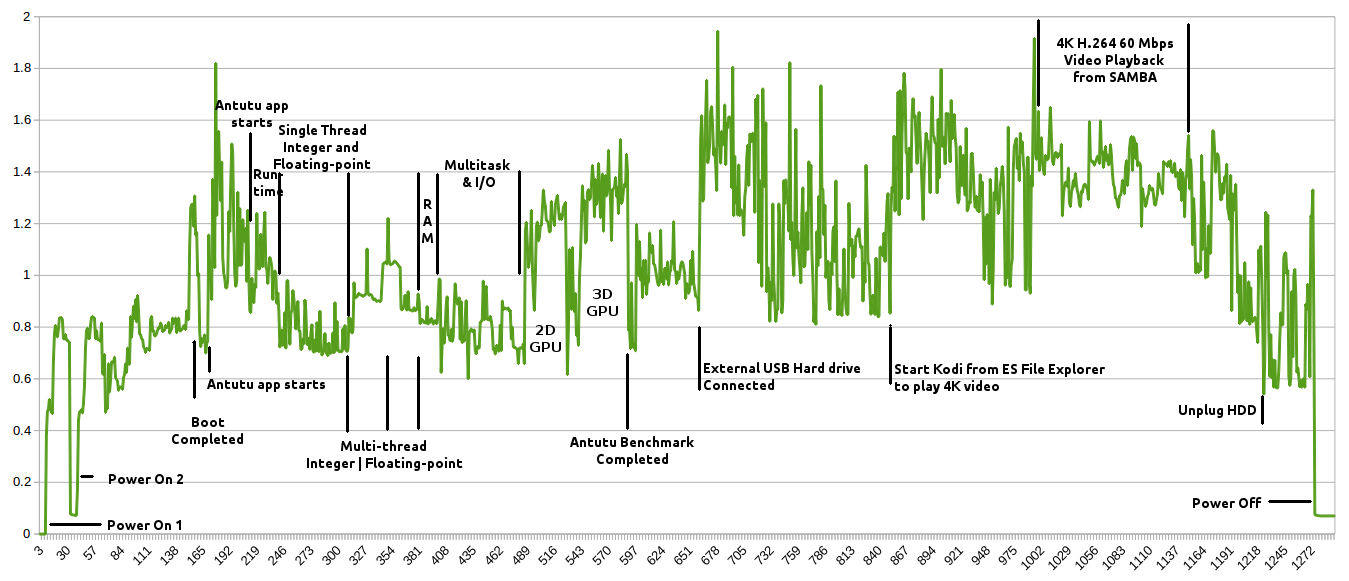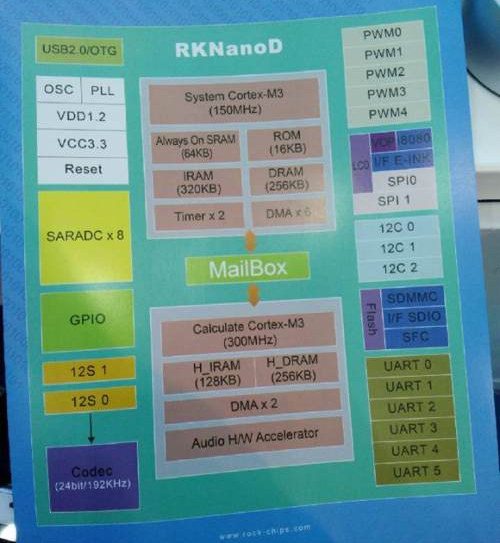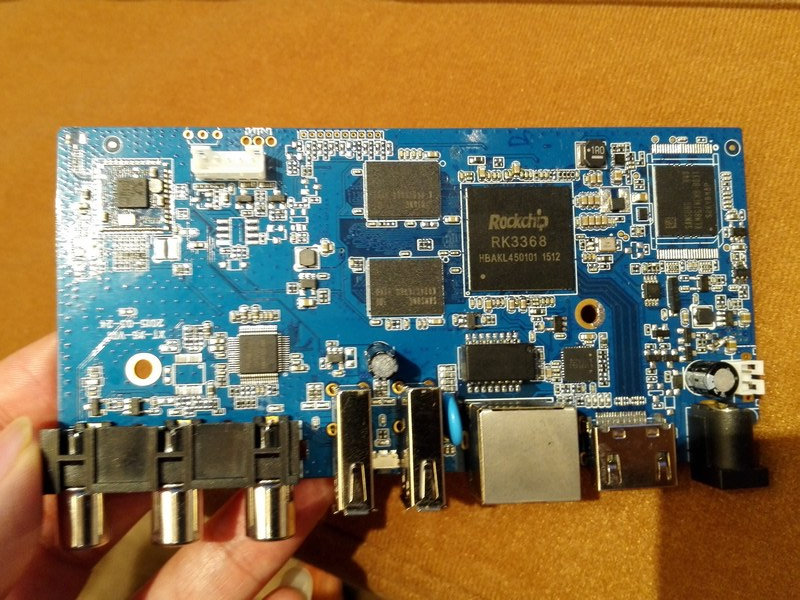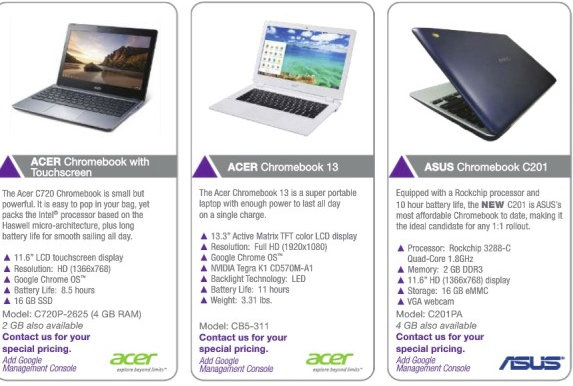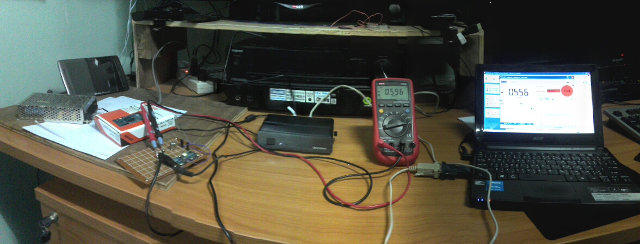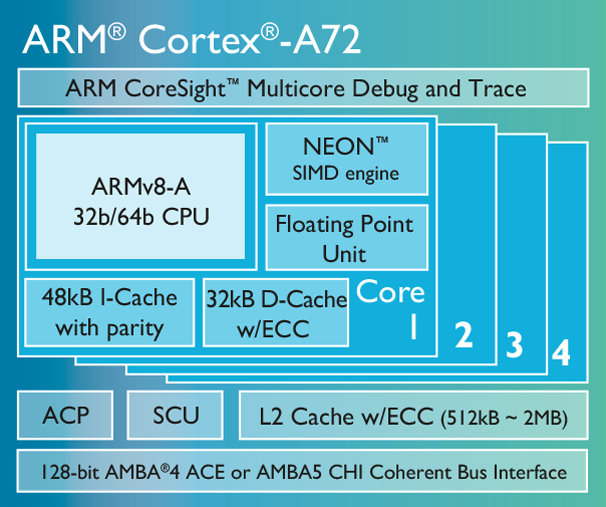Rockchip has announced a new WiFi SoC for IoT applications claiming 85% lower power consumption compared to competing WiFi solutions, which allows cell-coin battery powered WiFi systems thanks to a power consumption equivalent to what you’d get with a Bluetooth 4.0 LE system. Rockchip RKi6000 is said to consume 20 mA (@ 3.3V) during Rx operations. The SoC has been developed with an unnamed third party, and can achieve a lower power consumption thanks to three improvements: Improvement of RF transceiver architecture. The architecture can greatly reduce the active power consumption of IoT smart devices during continuous data transfer. Ultra low power can be achieved both in work and standby mode. Dozens of international patents have been filed for this technology. Adaptive dynamic power control technology. Power efficiency is optimized in different working modes and the total power consumption is reduced greatly in different application scenarios by adjusting the chip’s power […]
Intel Atom Z3735F mini PC Power Consumption in Android
I’ve already measured power consumption running Antutu and playing a 4K video on Rockchip RK3288 and Amlogic S812 platform, as described in “Power Consumption of Amlogic S812 and Rockchip RK3288 TV Boxes“, and now that I have an Intel Bay Trail-T mini PC running Android 4.4 with Wintel W8, I was interested in comparing its power consumption to the ARM platform. [Update: I forgot to mention measurements have all been done @ ~5V.] The test normally consists in several steps: Boot the device Run the latest Antutu benchmark Connect a USB hard drive Play a 4K video in Kodi from the hard drive Diconnect the hard drive Power off the device But since the current draw was a little to high at times, I got a few issues with my setup. First, I had to boot twice hence the “Power On 1” and “Power On 2” strings on the chart, […]
Rockchip RKNanoD is a Dual Core Cortex M3 MCU for IoT and Audio Applications
Rockchip is better known for their application processor like RK3188 or RK3288 found in tablets and mini PCs, but the company is also making lower power SoCs such as RKNanoC Cortex M3 micro-controller used in wireless audio applications, and more recently Rockchip demonstrated RKNanoD, a dual core Cortex M3 micro-controller for IoT and high-definition audio applications. Some key specifications and features of RKNanoD MCU: Cores ARM Cortex M3 @ 150 MHz with 64KB SRAM, 16KB RAM, 320KB iRAM, 256KB DRAM for system. ARM Cortex M3 @ 300 MHz with 128KB iRAM, 256 KB DRAM, and an audio H/W accelerator for compute tasks like audio decoding. Storage I/F – Flash, SDMMC, SDIO, SFC Display I/F – LCD, E-Ink Audio – 2x I2S, 24-bit / 192 KHz audio codec USB – USB 2.0 OTG Other I/Os – GPIO, 6x UART, 2x SPI, 3x I2C, 5x PWM, 8x SARADC 8x DMA, 2x Timers […]
Rockchip RK3368 64-bit ARM Android Boxes Are Coming Soon
Yesterday, Rockchip had an event for their Atom x3-C3230RK SoCs (previously known as Sofia) developed in collaboration with Intel, and upcoming Android 5.1 tablets and smartphones based on the new platform, as well as progress with their first 64-bit ARM SoC (RK3368) that is now integrated into Android TV boxes, albeit still in development. Padnews wrote a summary of the event, but in this post I’ll focus on Rockchip RK3368 hardware. One of the first product will be X6 TV box. Padnews did not have a readable picture with the specs, but Eric of Geekbuying also went to the event, and kindly provided a clear picture with the specs (Mali-600MP is however not the GPU used in RK3368): SoC – Rockchip RK3368 octa core Cortex A53 processor with PowerVR G6110 GPU with support for OpenGL ES 1.x/2.0/3.x, OpenGL 3.2, DirectX 9.3, OpenCL 1.2 EP, and Renderscript System Memory – 1 […]
Asus C201 Chromebook to be Powered by Rockchip RK3288 Processor
If you’ve been following this blog, you should know that Rockchip is working with Google on Chrome OS, so it was just a matter of time before a Rockchip powered Chromebook or Chromebox sees the light of the day. The first Rockchip RK3288 chromebook might end up being Asus C201 Chromebook with apparently a custom version of the Cortex A17 processor dubbed Rk3288-C, as OMG Chrome found out in Troxell’s 2015 brochure for K-12 education. So far we only know a few details about the specifications: SoC – Rockchip RK3288-C quad core Cortex A17 processor @ up to 1.8GHz System Memory – 2 to 4 GB DDR3 Storage – 16GB eMMC Display – 11.6″ display with 1366×768 resolution Webcam – VGA resolution The exact model name should be C201PA. Rockchip RK3288 should provide performance quite similar, and in some cases even better, to Intel Atom Z3735F, except possible when it comes […]
Power Consumption of Amlogic S812 and Rockchip RK3288 TV Boxes
The recent post comparing the power consumption of ODROID-C1 vs Raspberry Pi boards, as made me want to give another try at power consumption measurements. Regular reader already know I made a power measurement board and cables capable of hading different connectors (micro USB, mini USB, power barrels, etc..), but eventually it failed to deliver enough current to the boards for any meaning testing. But since I now have a better power supply, and multi-meter, it was worth another try, especially since I could draw some pretty charts. I decided to test the three most popular Chinese SoCs for mini PCs namely Amlogic S812 (4x Cortex A9), Rockchip RK3288 (4x Cortex A17), and Allwinner A80 (4x Cortex A15 + 4x Cortex A7) using respectively Eny M8S, Open Hour Chameleon, and A80 OptimusBoard. If you are paying attention, you must have noticed Allwinner A80 is not part of the title, that […]
Linux 3.19 Release – Main Changes, ARM and MIPS Architectures
Linus Torvalds released Linux Kernel 3.19 yesterday: So nothing all that exciting happened, and while I was tempted a couple of times to do an rc8, there really wasn’t any reason for it. Just as an example, Sasha Levin used KASan and found an interesting bug in paravirtualized spinlocks, but realistically it’s been around forever, and it’s not even clear that it can really ever trigger in practice. We’ll get it fixed, and mark it for stable, and tempting as it was, it wasn’t really a reason to delay 3.19. And the actual fixes that went in (see appended shortlog) were all fairly small, with the exception of some medium-sized infiniband changes that were all reverting code that just wasn’t ready. So it’s out there – go and get it. And as a result, the merge window for 3.20 is obviously also now open. Linus Linux 3.18 improved performance of […]
ARM Unveils Cortex A72 Processor and Mali-T880 GPU
ARM has just announced their new Cortex A72 ARMv8 core with 3.5 times the performance of Cortex A15 ARMv7 cores, together with Mali-T880 GPU delivering 1.8 times the performance of Mali-T760, and CoreLink CCI-500 Cache Coherent Interconnect to link the new CPU, GPU and I/Os together. ARM Cortex A72 Some of the key features of the new core include: Architecture – ARMv8-A Multicore – 1-4x SMP within a single processor cluster, and multiple coherent SMP processor clusters through AMBA 5 CHI or AMBA 4 ACE technology ISA Support AArch32 for full backward compatibility with ARMv7 AArch64 for 64-bit support and new architectural features TrustZone security technology NEON Advanced SIMD DSP & SIMD extensions VFPv4 Floating point Hardware virtualization support Cache – 48KB I-cache, 32KB D-cache, and 512 KB to 2MB L2 cache with ECC Debug & Trace – CoreSight DK-A57 Process – 16nm FinFET A cluster can support up to […]



